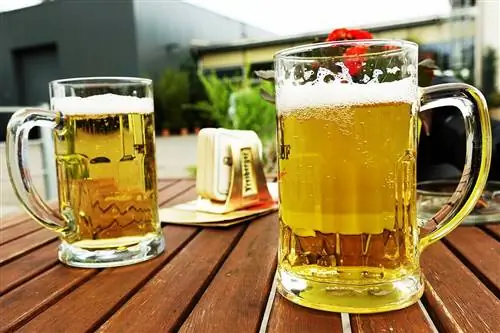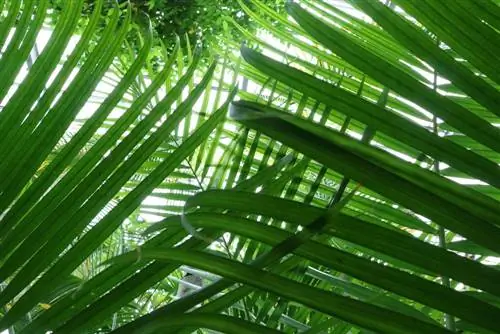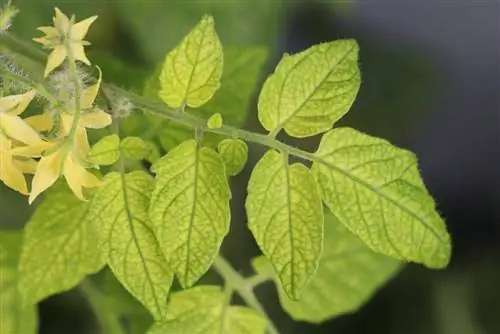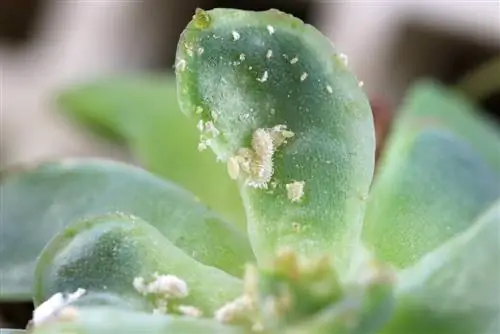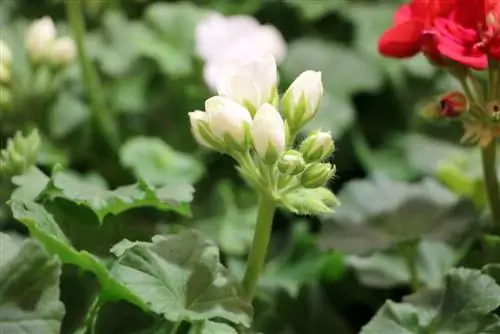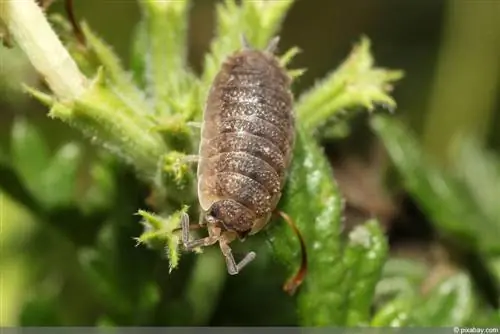- Author admin [email protected].
- Public 2023-12-17 03:39.
- Last modified 2025-01-24 12:45.
Lush growth in the garden and of houseplants is not a given, but is usually the result of an optimal supply of nutrients. But which unusual home remedies are suitable for fertilizing.
Fertilizer from kitchen waste
Banana peel
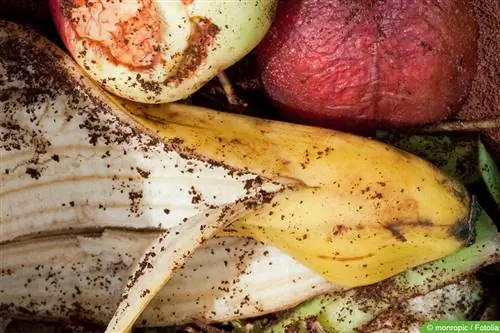
- contains a particularly high amount of potassium
- as well as magnesium, calcium and small amounts of nitrogen and sulfur
- best for fertilizing roses and other flowering plants
- as well as for pot and balcony plants
- If possible, only use bowls from Bioware
- Cut the banana peel into small pieces, dry and mix into the soil
- not suitable as sole fertilizer
- administer via irrigation water for houseplants
- make a broth from banana peels
- First chop the banana peels
- Boil 100 g of it with a liter of water
- let it steep overnight
- strain the next day
- then dilute the whole thing with water
- one part banana stock and five parts water
eggshell
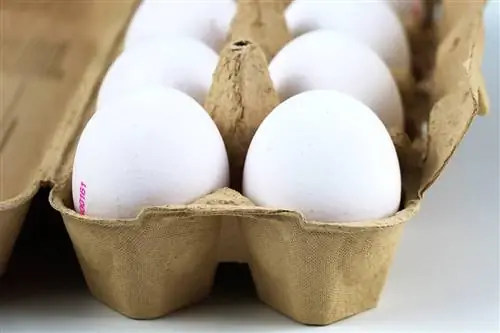
- Eggshell is mostly made of lime
- also potassium, calcium, phosphorus and magnesium in small amounts
- Peels neutralize acid in the soil
- increase the pH value
- promote the absorption of other nutrients
- Crush eggshells as best as possible
- add to watering water
- let stand for about 12 hours
- the shells of two to three eggs for a large pot
- the longer the shells are in the water, the more lime in the water
- Be careful with very hard water from the tap
- additional limescale from eggshells then doesn't make sense
- too much lime can worsen the quality of the soil
Tip:
Lime-loving plants include lavender, chives, lilacs, delphiniums, geraniums, carnations, liverworts and Christmas roses. By the way, finely ground eggshells can also balance the pH value of acidic rotting material in the compost.
Vegetable water
- for potted and garden plants
- Vegetables release nutrients and minerals into the water when cooked
- Cauliflower, broccoli, cabbage, asparagus and potato water are particularly suitable
- Water should not contain any spices
- S alt would deprive soil of nutrients
- after cooking, let it cool down and pour it over
Coffee grounds
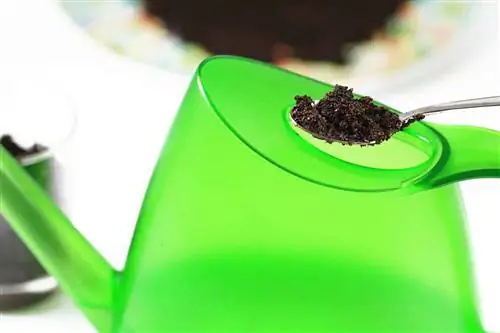
- excellent fertilizer for roses, geraniums and rhododendrons
- good for acid loving plants
- suitable for occasional fertilization
- up to four times a year
- Houseplants in winter and spring
- Coffee grounds permanently lower the pH value of the soil
- the soil becomes acidic
- contains all important nutrients
- such as potassium, nitrogen and phosphorus
- Fertilization stimulates growth, metabolism and seed formation
- dry the coffee grounds before use
- otherwise there is a risk of mold formation
- incorporate into the top layer of soil
- positive effect also on the compost
- some primary rock powder can reduce the acid-forming effect
Tip:
Organic fertilizers should be changed as regularly as possible and always paid attention to the individual needs of the respective plants.
Tea water
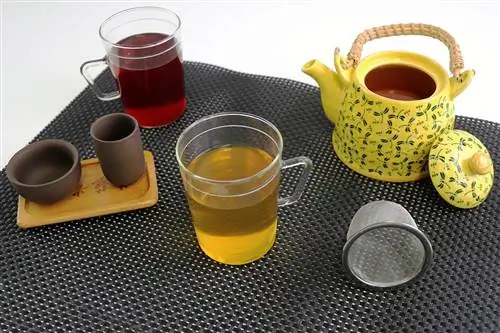
- black, green and chamomile tea proven as fertilizers
- Ingredients and effects similar to coffee grounds
- but seems less intense
- black tea lowers the pH value of the soil, keeps pests away
- so good for acid-loving plants
- Chamomile tea helpful in growing plants
- green tea helps improve soil
- used tea bags hanging in watering can with water
- Let it steep for a few hours and then pour
- all teas contain the substance Tein
- that keeps pests away
Tip:
The dried remains of tea bags can also be used for fertilization.
Fertilizer from leftover drinks
Beer
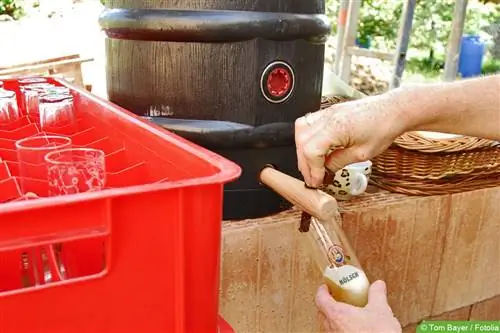
- Hops and m alt contain natural nutrients
- Potassium, phosphorus, magnesium and many trace elements
- suitable for indoor and garden plants
- Beer should be stale for one to two days
- dilute 1:2 with water before fertilizing
- Fertilize plants once or twice a month
- undiluted, stale beer also good for leaf care
- just put it on a cotton ball and dab the leaves
Milk
- Amino acids in milk are a good source of nutrients in the vegetable garden
- only use low-fat or skimmed milk
- mix one part skimmed milk with eight parts water
- particularly good for roses, tomatoes and ferns
- pour in the correct mixing ratio
- Amino acids promote plant growth
Tip:
Milk is also a good plant protection agent and is said to help against both powdery mildew and curl disease on peaches and nectarines.
Mineral water
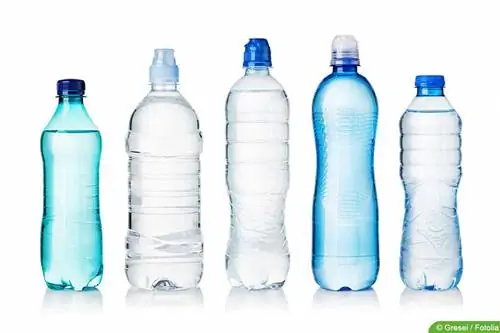
- Mineral fertilizer especially for houseplants
- Mineral water should be stale
- should contain little or no carbon dioxide anymore
- contains many minerals and trace elements but no nutrients
- not sufficient as a sole fertilizer
Other exceptional fertilizers
Algae
- Abundant in the garden pond
- a nutrient-rich seaweed
- high proportion of potassium, phosphorus and nitrogen
- these nutrients are essential for plant growth
- also contain magnesium, lime and important trace elements
Aquarium water
- good fertilizer for tomato plants
- old aquarium water is very rich in nutrients
- contains potassium, phosphorus, nitrogen and valuable trace elements
- use with caution
- administer about one liter every two weeks
- diluted or undiluted depending on the nutrient content of the soil
- fertilize especially when there is a nutrient deficiency
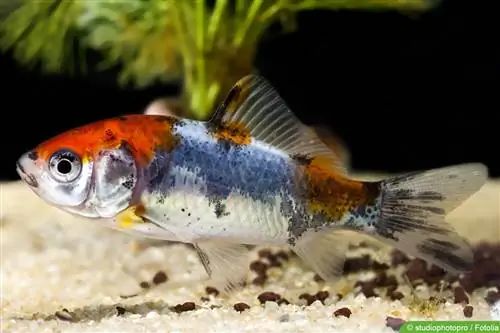
Tip:
Aquarium water is sometimes treated chemically, for example to adjust the pH value or to treat sick fish. This water is of course not suitable as fertilizer.
Fish waste
- unappetizing but effective organic fertilizer
- Fish contains a lot of trace elements
- both freshwater and marine fish
- Concentration highest in marine fish
- particularly good for tomatoes
- add to the planting hole when planting
- about one dead fish per tomato
- Fish waste can also be composted
- just mix with normal plant waste
- similar to conventional compost heaps
Hair
- Fertilizer from beard hair is a real insider tip
- especially among orchid lovers
- also suitable for slow-growing indoor and greenhouse plants
- Hair contains a lot of nitrogen
- release important minerals during the decomposition process
- they promote plant growth
- mixed with compost, a good long-term fertilizer
Wood ash

- excellent potassium supplier
- also contains lime, iron and phosphate
- strongly alkaline pH value of 11-13
- neutralizes acidic soil
- Consequently not suitable for acid-loving plants
- good for all lime-tolerant plants
- like roses, geraniums or fuchsias
- mainly recommended for ornamental plants
- Wood ash has an anti-rot and anti-fungal effect
- do not use together with fertilizer containing ammonium
Tip:
The wood ash should only come from untreated wood. Glazes, paint residues or veneers usually contain toxins that are converted into toxic substances when burned.

